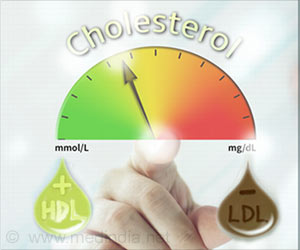The number of patients who have lowered their bad cholesterol to the advised level has nearly doubled in nine countries over the last decade, according to a study released Monday.
The number of patients who have lowered their "bad" cholesterol to the advised level has nearly doubled in nine countries over the last decade, according to a study released Monday.
The research, published in the American Heart Association's journal Circulation, said patients in the United States, Brazil, France and South Korea had improved their cholesterol through a combination of medical treatment and lifestyle changes.The study found the number of patients successfully reaching their target low-density lipoprotein levels (LDL) rose from 38 percent to 73 percent over the last 10 years.
The study, which surveyed close to 10,000 people with an average age of 62, found less improvement among high-risk patients.
Only 30 percent of those patients, who have existing coronary artery disease or risk factors such as obesity, diabetes or smoking, successfully reached their target LDL of 70 milligrams per deciliter or less.
"Although there is room for improvement, particularly in very high-risk patients, these results indicate that lipid-lowering therapy is being applied much more successfully than it was a decade ago," said David Waters, lead author of the study from the University of California, San Francisco.
The countries in the study were Brazil, Canada, France, Mexico, the Netherlands, South Korea, Spain, Taiwan and the United States.
Advertisement
For patients without coronary artery disease, diabetes, or other cardiovascular risk favors, the ideal LDL is 160 mg/dL or less.
Advertisement
Patients who have cardiovascular diseases or diabetes are advised to have a bad cholesterol level no higher than 100 mg/dL, and should try to maintain a level lower than 70 mg/dL if they have other risk factors, the study said.
Source-AFP
LIN












